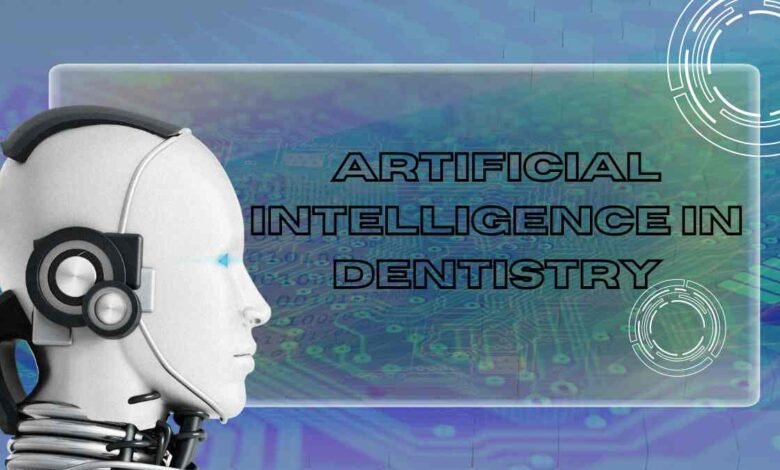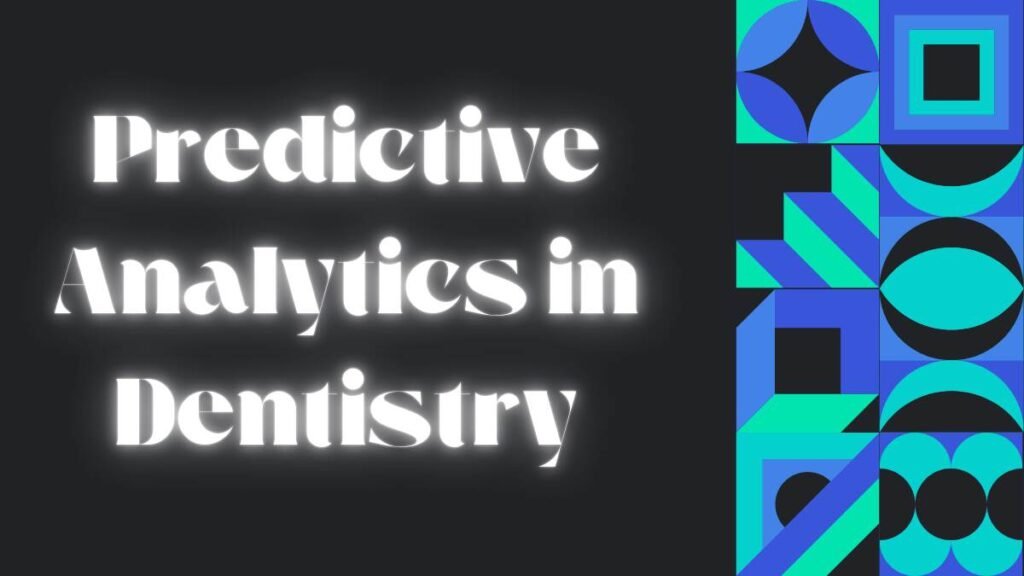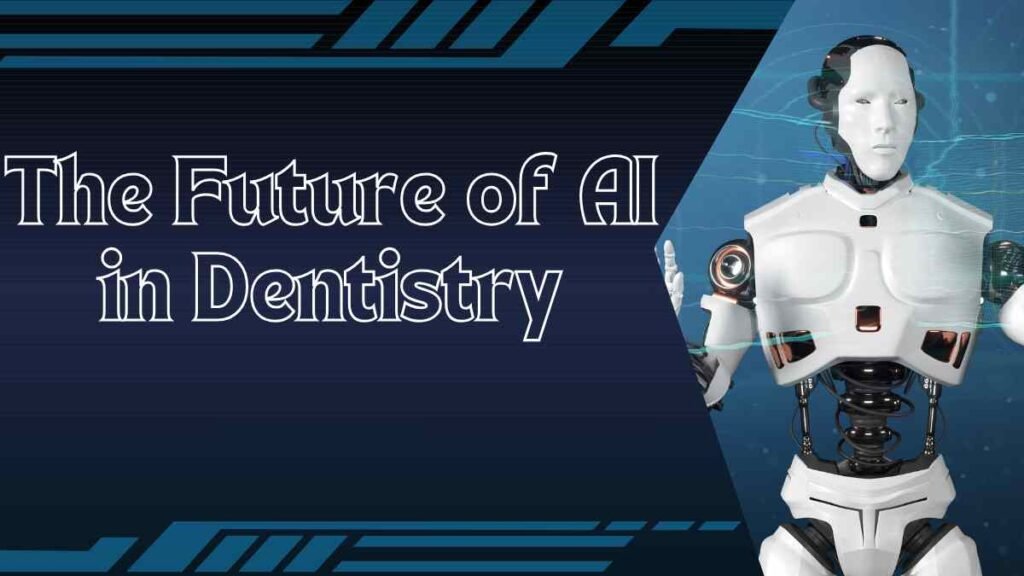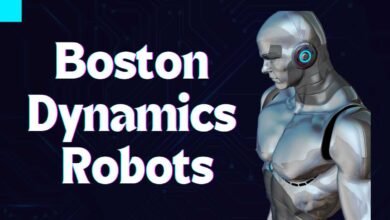Artificial Intelligence in Dentistry: Ultimate Future of Dental

Artificial Intelligence (AI)in dentistry waves across numerous fields, and dentistry is no exception. From diagnostic tools to predictive analytics, AI is transforming the way dental professionals approach patient care. With its ability to analyze large amounts of data and automate processes, AI is reshaping dentistry in ways that were unimaginable just a few years ago. In this article, we’ll explore how AI is being used in dental imaging, diagnosis, and even surgery, as well as the benefits and challenges of integrating AI into modern dental practices.
The Role of AI in Dental Imaging
AI Dental Imaging Technologies: Artificial Intelligence in Dentistry
One of the most significant advancements in dentistry is the integration of AI into dental imaging. Traditional dental imaging techniques such as X-rays and CT scans are being enhanced by AI algorithms that can detect anomalies more quickly and with greater accuracy. AI dental imaging tools use machine learning to scan images for early signs of issues like cavities, gum disease, or even oral cancers.
Enhancing Precision and Speed in Diagnosis
AI-powered dental imaging tools can dramatically reduce the time it takes to analyze images. Where a dentist might take several minutes to review an X-ray, AI systems can analyze the same image in seconds. This increased speed does not come at the cost of accuracy. This means earlier diagnosis, more effective treatment plans, and ultimately better patient outcomes.
Automated Diagnosis in Dentistry
How AI Helps in Early Detection of Oral Diseases: Artificial Intelligence in Dentistry
Automated diagnosis is another key area where AI is making an impact. By using AI algorithms, dental practices can now detect oral diseases much earlier than with traditional methods. For instance, AI tools can identify the early stages of gum disease or tooth decay before they become visible to the naked eye. This allows for preventative care that can save patients from more serious procedures down the line.
The Accuracy of Automated Diagnosis: Artificial Intelligence in Dentistry
AI-driven diagnosis systems are designed to be highly accurate. Machine learning models are trained on thousands of dental images, enabling them to distinguish between healthy and diseased tissues with minimal error. Some studies have shown that AI systems can diagnose conditions with accuracy rates that rival or even surpass those of experienced dental professionals. This level of precision ensures that patients receive the correct treatment at the right time.
Machine Learning: Artificial Intelligence in Dentistry
Training AI to Identify Dental Problems: Artificial Intelligence in Dentistry
Machine learning is a subset of AI that allows computers to learn and improve from experience without being explicitly programmed. In dentistry, machine learning algorithms are trained to recognize patterns in dental images and patient data. By analyzing thousands of cases, these systems can identify potential dental problems such as misaligned teeth, gum disease, and even oral cancers with impressive accuracy.
Must Visit: Twist Tale
Machine Learning’s Impact on Oral Health Management
Machine learning doesn’t just stop at diagnosis; it also plays a significant role in managing oral health. By tracking patient data over time, AI systems can offer personalized care recommendations based on the patient’s unique needs. For example, machine learning models can predict when a patient is at risk for developing cavities or gum disease, allowing dentists to provide targeted preventative care.
AI-Powered Dental Tools and Their Applications
AI in Surgical Procedures: Artificial Intelligence in Dentistry
They are also playing an increasingly important role in surgical procedures. Robotic systems guided by AI can assist dentists in performing complex surgeries with greater precision. For example, AI can help in dental implant placement by analyzing the structure of the jawbone and determining the best position for the implant.
AI-Enhanced Dental Robotics
AI-powered robots are now being used in certain dental procedures, such as cleaning, drilling, and even tooth extraction. These robots use machine learning algorithms to improve their techniques over time, reducing the risk of human error and improving patient safety. The integration of robotics and AI in dental tools is helping to make procedures quicker, safer, and more effective.
Predictive Analytics in Dentistry

Anticipating Future Oral Health Issues: Artificial Intelligence in Dentistry
One of the most exciting applications of AI in dentistry is predictive analytics. By analyzing patient data, AI systems can anticipate future oral health issues before they become problematic. For example, if a patient has a history of gum disease, AI systems can predict when the disease is likely to flare up again and recommend preventative measures.
Preventative Care with Predictive Models
AI-powered predictive models also enable dentists to offer more proactive care. Instead of waiting for problems to occur, dental professionals can use AI to develop personalized care plans that help prevent issues like cavities or gum disease from developing in the first place. This shift toward preventative care not only improves patient outcomes but also reduces the overall cost of dental care.
Benefits of AI in Dentistry
Reduced Human Error: Artificial Intelligence in Dentistry
One of the primary benefits of using AI in dentistry is the reduction of human error. AI systems can process vast amounts of data without fatigue or distraction, making them ideal for tasks that require precision, such as diagnosing diseases or performing surgical procedures.
Improved Patient Care and Experience
AI also enhances the overall patient experience. With faster diagnostics, personalized treatment plans, and more efficient procedures, patients can expect shorter appointments, less discomfort, and better outcomes. The integration of AI into dental practices helps streamline workflows, allowing dentists to focus on patient care rather than administrative tasks.
Challenges AI in Dental Practices
Technical and Ethical Considerations: Artificial Intelligence in Dentistry
Despite its many benefits, the integration of AI into dentistry does come with challenges. One concern is the ethical implications of using AI in medical decision-making. There is also the technical challenge of ensuring that AI systems are accurate and reliable. Dental professionals must receive specialized training to effectively use AI tools, and ensuring patient data privacy is another critical issue.
High Costs and Training Requirements
Implementing AI technology in dental practices is expensive. The cost of purchasing, maintaining, and upgrading AI systems can be prohibitive, especially for smaller practices. Additionally, training staff to use AI tools effectively requires time and resources, which can be a significant barrier to adoption.
The Future of AI in Dentistry

Emerging Trends in AI Dental Tools: Artificial Intelligence in Dentistry
The future of AI in dentistry is bright, with new tools and technologies emerging every year. From advanced diagnostic systems to fully autonomous robots, the possibilities are endless. AI is likely to play an even greater role in personalized patient care, making dental visits more efficient and effective.
Long-Term Implications for Dental Health
As AI continues to evolve, its long-term implications for dental health are profound. With better diagnostics, more precise surgical tools, and predictive analytics, patients will enjoy better oral health outcomes. The shift toward preventative care enabled by AI will also reduce the need for invasive treatments, leading to a healthier population overall.
Conclusion
Artificial intelligence is transforming the field of dentistry, offering new possibilities for diagnostics, surgery, and patient care. With AI-powered tools, dental professionals can provide faster, more accurate, and more personalized care. Although challenges remain in terms of cost and training, the future of AI in dentistry looks promising. As the technology continues to evolve, both patients and dental professionals stand to benefit from these exciting advancements.
(FAQs)
How does AI improve dental imaging?
AI improves dental imaging by analyzing images quickly and with greater precision, enabling earlier diagnosis of oral health issues.
Can AI fully replace dentists in the future?
While AI can assist in many areas, it is unlikely to fully replace human dentists. AI complements dentists by enhancing their capabilities.
What are the benefits of using AI for oral health?
The benefits include faster diagnostics, improved accuracy, personalized care, and better overall patient outcomes.
Is AI diagnosis more accurate than traditional methods?
In many cases, AI diagnosis can be more accurate due to its ability to analyze large datasets and detect subtle signs that may be missed by the human eye.
Are there risks associated with using AI in dental care?
While AI has many advantages, there are risks related to technical errors, data privacy concerns, and the need for specialized training.
Read More: Freelance Digital Marketing





